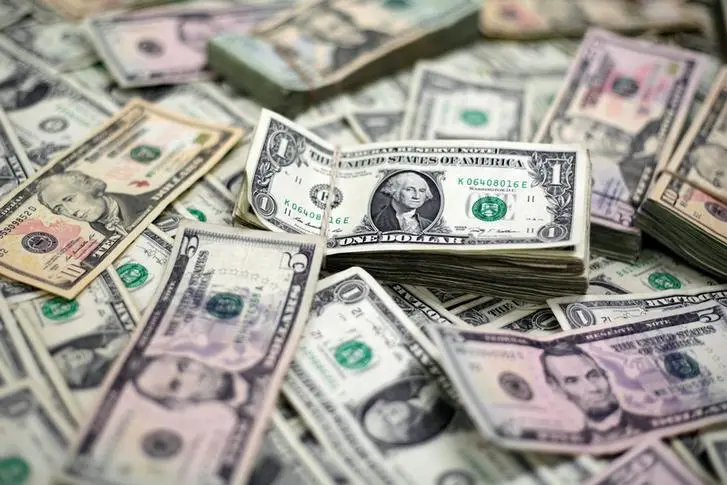PHOTO
TOKYO (Reuters) - The dollar firmed on Monday, hovering near a two-month high against the yen, after the market gained some clarity following military strikes on Syria by the United States and its allies at the weekend.
The United States, France and Britain launched missiles targeting what the Pentagon said were chemical weapons facilities in Syria on Saturday, in retaliation for a suspected poison gas attack on April 7.
Suggesting that the military action would not be prolonged, Trump declared "mission accomplished" after the strikes.
The greenback gained against the yen after the military intervention, although the Japanese currency usually draws demand in times of political tension and market turmoil thanks to its perceived safe-haven status.
The U.S. currency was 0.2 percent higher at 107.515 yen . A rise above Friday's high of 107.780 yen would take the dollar to its highest since Feb. 22.
"The reaction in currencies have been limited as President Trump had provided advance notice about a possible strike on Syria, giving speculators ample time to brace for the actual event," said Yukio Ishizuki, senior forex strategist at Daiwa Securities.
"Many speculators are showing less of a response to yen-supportive factors lately, after the Bank of Japan made clear it was not going to normalise policy soon. This goes for domestic factors as well, like falling support ratings for (Japan Prime Minister Shinzo) Abe."
Support for Prime Minister Abe, plagued by accusations of cronyism and cover-ups, fell to 26.7 percent in a survey by private broadcaster Nippon TV released on Sunday, the lowest since he took office in December 2012.
The dollar index against a basket of six major currencies was a shade higher at 89.807.
The euro was nearly flat at $1.2332 after ending Friday little changed.
The pound traded at $1.4244 after rising to a near three-month high of $1.4296 on Friday.
Expectations of a rate rise from the Bank of England have been a major driver of sterling's gains in recent days.
The Australian dollar was flat at $0.7770 and the New Zealand dollar dipped 0.05 percent to $0.7348.
The Hong Kong dollar traded at 7.8499 per dollar, continuing to hover near 7.85, the weak end of its trading band.
The Hong Kong Monetary Authority (HKMA) stepped in last week to prop up the Hong Kong dollar, as it is obliged to intervene and keep intact a trading band of 7.75 to 7.85. (Reporting by Shinichi Saoshiro Editing by Eric Meijer)
© Reuters News 2018





















